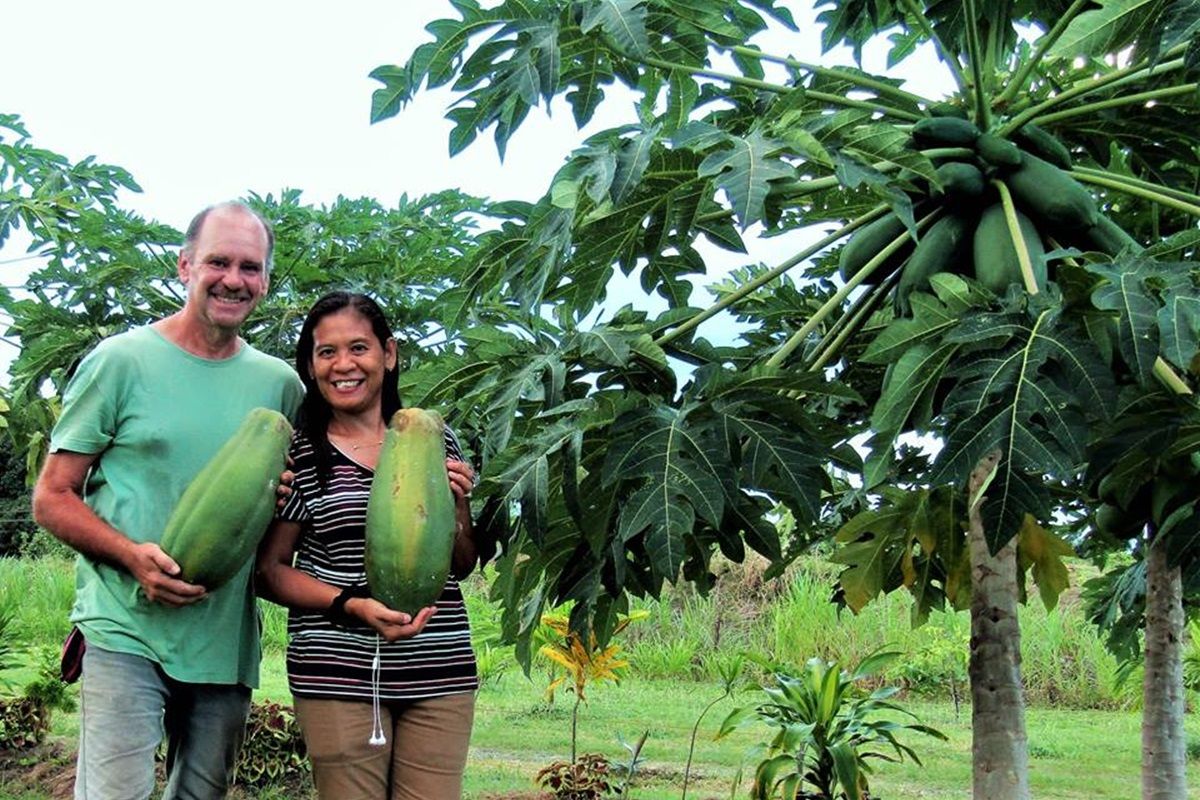Sustainability is a major goal in our operations at the Casa Esperanza of Angels Philippine Mission. Running a mission with multiple programs and projects such as ours can be an extremely costly proposition. We are aware that we can only continue with our mission to spread the Gospel of Jesus Christ and serve the local community if our operations are efficient, well-managed, and sustainable.
We plan to be as self-sustaining as possible by apportioning a large tract of cultivable land within the mission for the raising of vegetables and animals for food. We will also be partnering with business and the local community to get the best price points for our supplies. Through these efforts we hope to keep our cost to operate at sustainable levels for the long term. This will reduce the burden on donors and ease the constant struggle of raising funds for our operations.
Farming Our Own Food
We regularly cultivate a variety of vegetables, such as: okra, eggplant, cucumber, sweet pepper, ginger, string beans, squash, malungay, lemon grass, and other vegetables in our mission garden. We hope to sharply increase vegetable production and expand the number of crops once we start operations at the CEA orphanage (a major project in our mission).
We are also currently propagating fruit trees and plants inside the mission such as banana, carambola tree, papaya, guava, sapodilla (chico), avocado, sugar-apple (atis), mango, Watery Rose Apple (Tambis), dragon fruit plants (Hylocereus undatus), pomelo, lemon, pineapple, and other fruit-bearing trees. To date, we’ve already enjoyed the produce from our banana, papaya, pineapple, and lemon trees.
Lessons in Sustainability
The children at the CEA orphan care facility will be educated and will participate in the sustainability and self-sufficiency program as a whole lifestyle. There is dignity in farming and raising your own food whenever possible and we will strive to inculcate to the children of the orphanage the value of self-sufficiency, self-discipline, and labor.
Through daily immersion activities in the gardening and farming initiatives at the mission, the children will learn important skills in sustainability, organic farming, composting, cultivation, and animal farming. These lessons will hopefully become invaluable and useful to them in the future when they become independent adults and start their own families outside the mission walls.
We will also share our farming insights and technical know-how to individuals from indigent communities to help them develop their own backyard or urban gardens for food production. This is part of our livelihood skills training program designed to help marginalized communities become self-sufficient in their daily food needs.

CEA Director Ronald Brown and Gigi Brown harvesting papaya at the Casa Esperanza of Angels mission facility.
Sharing The Harvest
During our last community outreach event, we were able to distribute excess vegetable produce (cucumbers, string beans, okra, and eggplant) and fruits (papaya) to several indigent families. Our farming and cultivation strategy within the mission is designed not just to keep the children and staff of the mission constantly supplied with nourishing food. We’re also counting on surplus produce that can be shared regularly to impoverished communities in the area during our outreach activities.
We consider our outreach events integral to our evangelical initiatives as we work to establish a church of Christ congregation in Tanjay City (population 80,000). Seen from this perspective, the farm produce that we harvest inside the mission as part of our sustainability program also plays an important role in our evangelization activities.
Partnering with the Community & Local Businesses
We will seek to collaborate with local corporations and businesses to gain donations, goods, or services at reduced prices. We will also seek to become active in the community to make our efforts known to those who may be able to assist in the support of the work.
The local community, more than anyone else, has a stake in our success in helping indigent people and children in the area. We believe that that we can rally support from them once they see the full extent of our projects and activities and thus, over the long term, reduce the burden on donors from other congregations.
DONATE TO THIS PROGRAM NOW
Click here for other donation options

